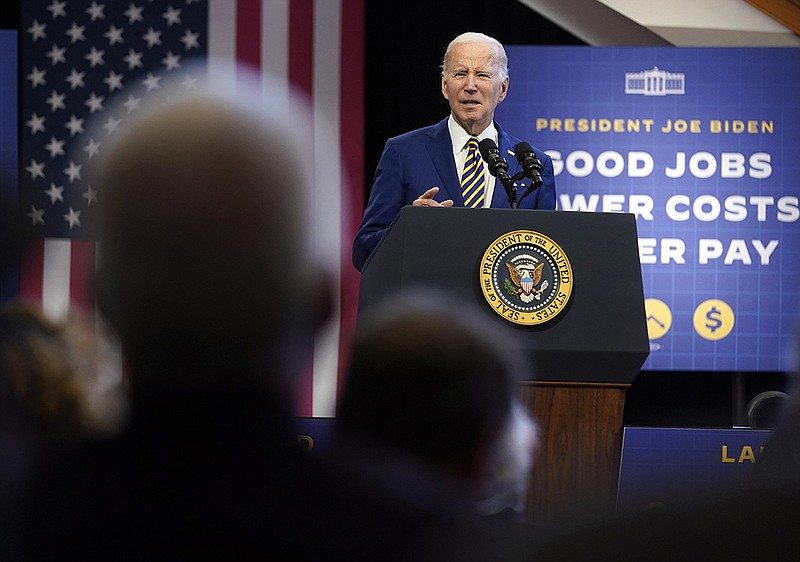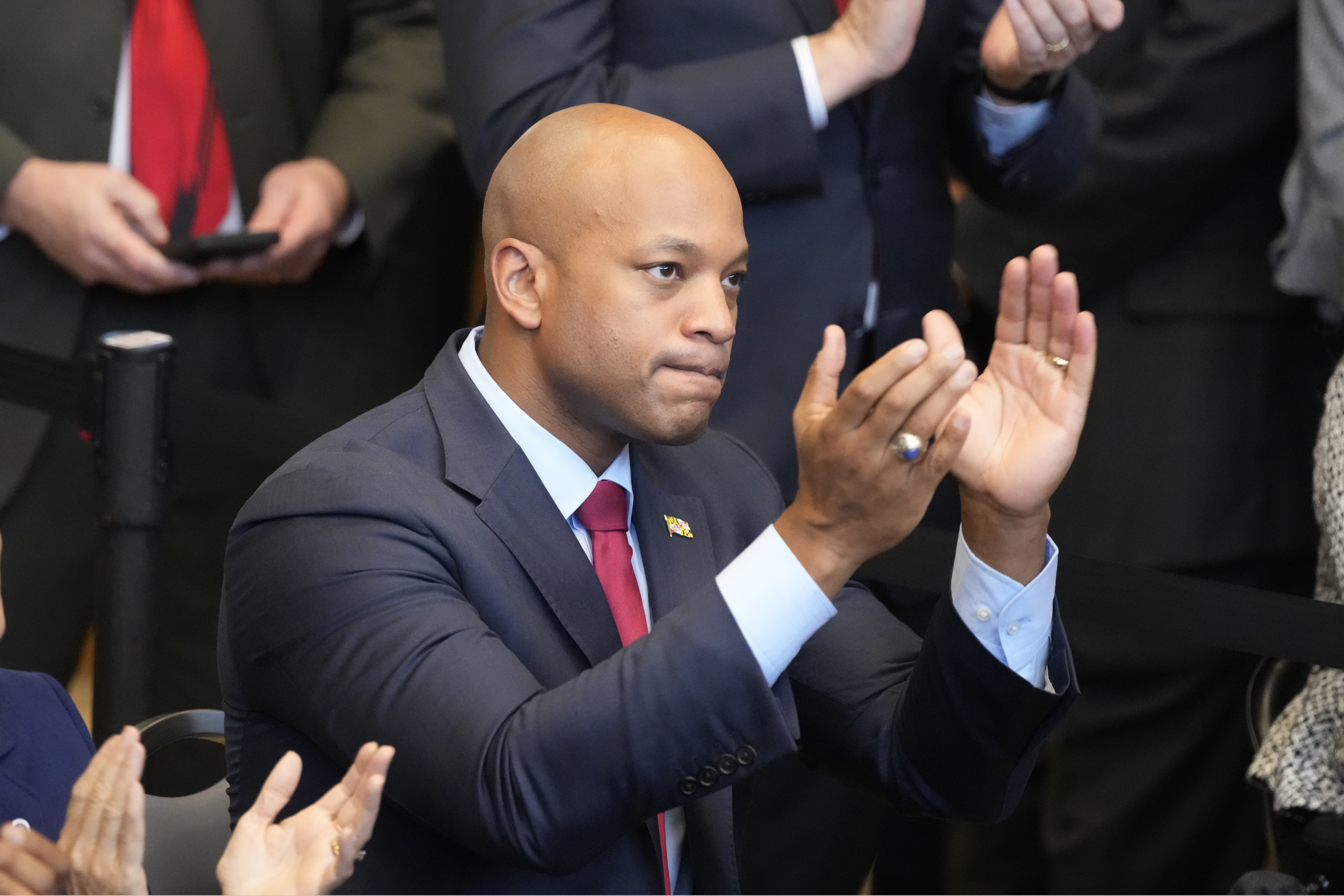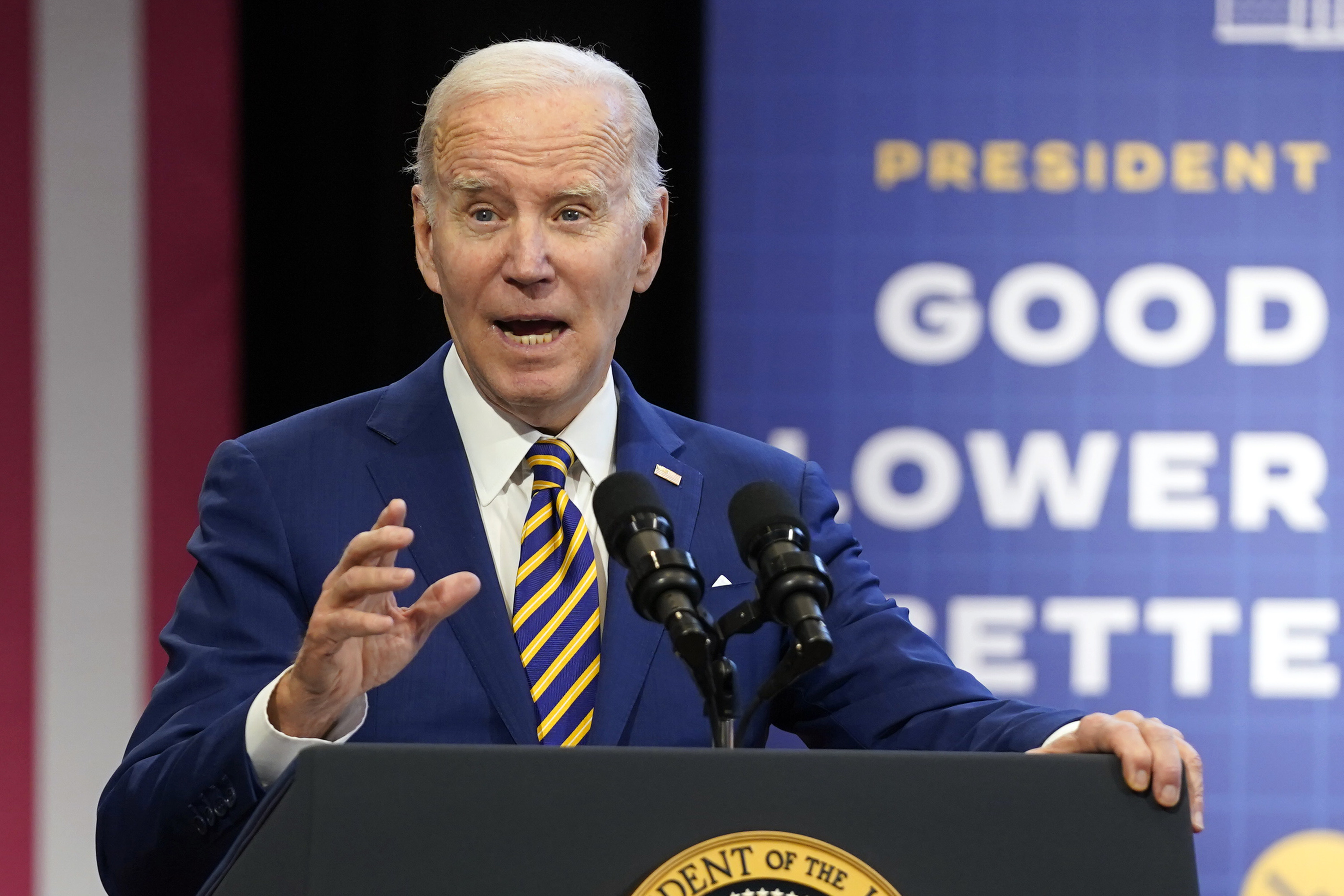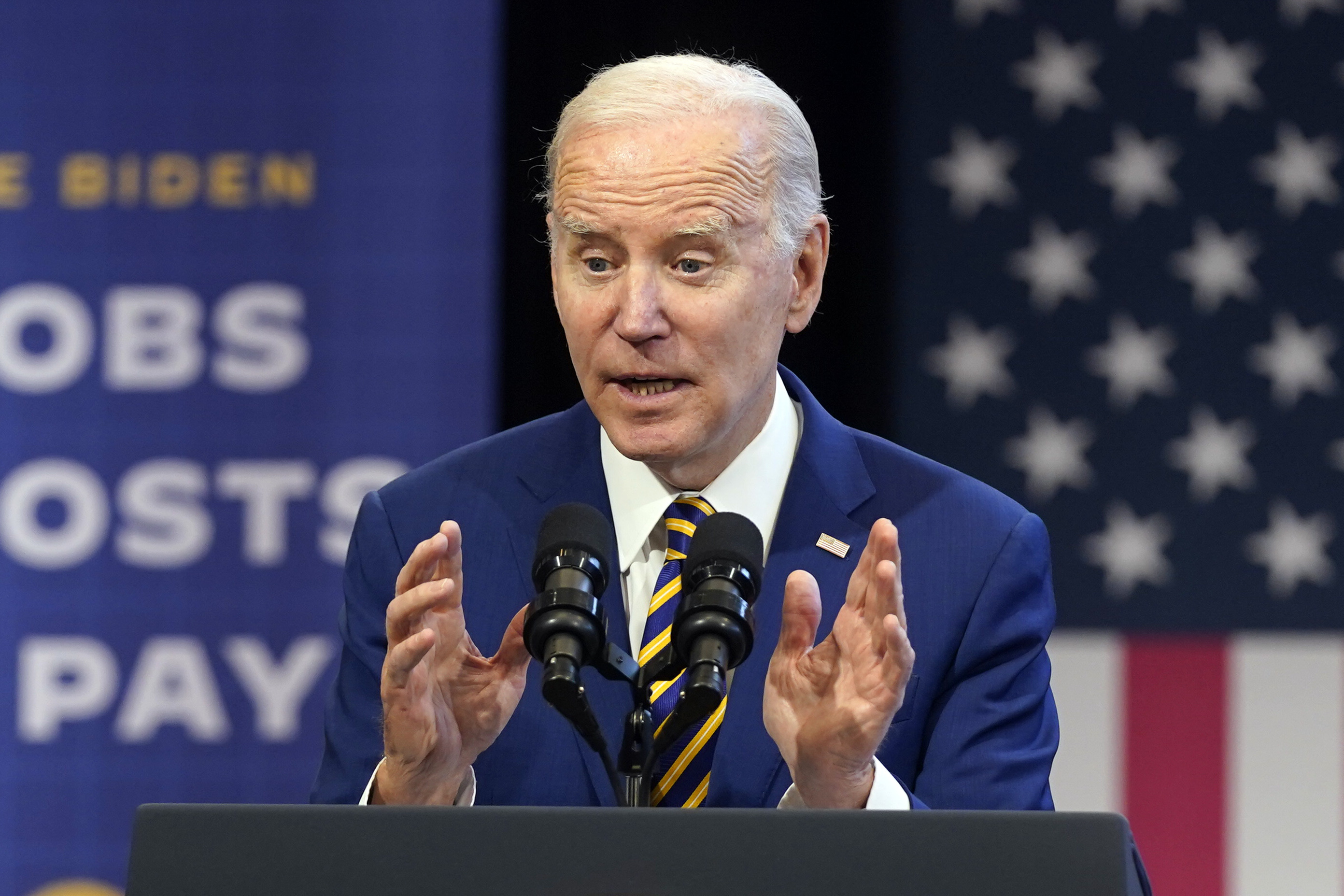On a day when President Joe Biden said Republican policies would blow up the national debt by $3 trillion over 10 years, the Congressional Budget Office said the U.S. is on track to add nearly $19 trillion to its debt in the next decade – $3 trillion more than previously forecast -- as a result of rising costs for interest payments, veterans' health care, retiree benefits and the military.
Biden took direct aim at GOP lawmakers who say their priority is balancing the budget: "It would explode the deficit and leave the American taxpayer holding the bag," the president told union workers gathered in Lanham, Md., on Wednesday as he panned GOP proposals.
The president said his budget, which is to be released March 9, would protect Social Security and Medicare from cuts, while reducing the national debt by $2 trillion over a decade. One key driver of Biden's planned deficit reduction appears to be his willingness to increase taxes on the wealthiest U.S. households.
"I want to reward work, not just wealth," Biden told the union workers.
The Congressional Budget Office projects a $1.4 trillion gap this year between what the government spends and what it takes in from tax revenue. Over the next decade, deficits will average $2 trillion, as tax receipts fail to keep pace with the rising costs of Social Security and Medicare benefits for retiring baby boomers.
To put those numbers in context, the total amount of debt held by the public will equal the total annual output of the U.S. economy in 2024, rising to 118% of the economy by 2033.
[DOCUMENT: Read the CBO's visual summary of the next 10 years » arkansasonline.com/216cbo33/]
Congress' nonpartisan budget scorekeeper now projects that the U.S. economy will barely grow this year after adjusting for inflation and that the unemployment rate will rise above 5% before growth accelerates again next year. It attributes the slowdown to the Federal Reserve's campaign to tame inflation.
While Republican lawmakers have blamed Biden and his fellow Democrats for the rising deficits, the report makes clear that bipartisan legislation -- and the Fed's interest rate increases -- are to blame.
Newly enacted legislation in the past nine months will add about $1.5 trillion to the deficit over the next decade, the budget office said.
More than half that increase comes from a single law: an expansion of health care benefits for military veterans who were exposed to toxic burn pits. That bill passed overwhelmingly in the House and Senate, with majorities of Republicans in both chambers voting yes.
Another $550 billion in deficits is attributable to increased military spending, which also has strong bipartisan support.
In contrast, the budget office said Biden's signature climate, tax and health care bill, which passed with only Democratic votes, would modestly reduce deficits over the next decade. That's because the bill's spending and tax credits were more than offset by its tax increases on corporations and high earners, along with its efforts to reduce the government's spending on prescription drugs for retirees.
BACK AND FORTH
The president essentially charged the GOP with hypocrisy for favoring tax policies that could push the $31.4 trillion national debt higher. But Biden wants to preserve some of the same tax cuts as Republicans so long as the approach is "fiscally responsible."
His speech Wednesday was the latest evolution in a political and economic debate that will play out over several months. Biden and House Speaker Kevin McCarthy need to reach a deal by midsummer on raising the government's legal borrowing authority or else it could lack the funds to pay its bills and default.
McCarthy, R-Calif., says they should agree on a path toward balancing the budget, saying via Twitter on Friday, "No more blank checks for runaway government spending."
The president detailed a recent exchange with the speaker in a speech Tuesday. He said McCarthy "made it real clear to me what he wants to do. He says he's not going to raise any taxes at all on anybody. He just wants to cut programs."
The president said Republican lawmakers should present their budget plan to the public, just as the White House intends to do.
"I believe we could be fiscally responsible without risking -- threatening to send our country into chaos," Biden said Tuesday of debt limit talks.
But the actual path of the debt could hinge on the upcoming expiration of individual tax cuts that former President Donald Trump signed into law in 2017. Extending those cuts would in theory raise the national debt, as the budget office based its projections on them lapsing after 2025.
The White House said Republicans would increase the debt by $2.7 trillion by prolonging those tax cuts, in addition to cutting a corporate minimum tax established by Biden and other policies.
The White House said the extension of the Trump-era tax overhaul would give a $175,000 tax cut to families with incomes above $4 million. The size of that cut is roughly double the median U.S. household income.
But the White House also said Biden would like to preserve some of the same tax cuts as Republicans, just not those that benefit the wealthy. Biden pledged during the 2020 campaign to not raise taxes on anyone making less than $400,000, so letting the tax cuts expire could be viewed as a tax hike on the middle class.
The Tax Policy Center, a think tank, estimated when the law was passed that 53% of taxpayers would see their IRS bills increase in 2027 after the cuts expire. About 70% of those solidly in the middle class -- the middle 40% to 60% of all taxpayers -- would owe more.
The White House said the president is committed to a "fiscally responsible approach to continuing current tax policies" for people earning less than $400,000. It's unclear what that could mean for the national debt, despite Biden on Wednesday repeating his promise in last week's State of the Union address to cut the deficit by $2 trillion.
That leaves Republicans and Democrats theoretically in agreement on keeping taxes low for most people, while leaders in both parties have pledged no cuts to Social Security or Medicare.
Maya MacGuineas, president of the Committee for a Responsible Federal Budget, said lawmakers should be open-minded and consider changes across the board in order to lower deficits.
"Everything should be on the table to get our unsustainable fiscal problems under control," she said.
DEBT CEILING DEADLINE
The budget office also said Wednesday that the Treasury Department's ability to continue paying its bills and prevent the U.S. from defaulting on its debt could be exhausted sometime between July and September if Congress does not raise or suspend the cap on how much the nation can borrow.
The estimate suggests lawmakers could have slightly more leeway than Treasury Secretary Janet Yellen estimated recently when she told Congress that her department's ability to keep financing America's obligations could be exhausted in June.
The United States borrows huge sums of money for funding that includes military salaries, retiree benefits and interest payments to bondholders who own U.S. debt. The nation hit its statutory $31.4 trillion borrowing cap last month, forcing Treasury to employ accounting maneuvers to ensure the government can continue paying its bills without breaching the debt limit.
"If the debt limit is not raised or suspended before the extraordinary measures are exhausted, the government would be unable to pay its obligations," the budget office said. "As a result, the government would have to delay making payments for some activities, default on its debt obligations or both."
However, the budget office noted that the timing of the so-called X-date is uncertain because it depends on how much tax revenue comes in. The office said that if receipts fall short of its estimates, the Treasury could run out of funds before July.
Yellen has been employing extraordinary measures since January to keep the government running-- including redeeming investments and suspending investments in the Civil Service Retirement and Disability Fund and the Postal Service Retiree Health Benefits Fund.
On Tuesday, Yellen warned that a default would be catastrophic.
"In my assessment -- and that of economists across the board -- a default on our debt would produce an economic and financial catastrophe," Yellen said. "Household payments on mortgages, auto loans and credit cards would rise, and American businesses would see credit markets deteriorate."
Calling on Congress to act, she said: "This economic catastrophe is preventable."
Republican lawmakers have insisted that Biden agree to undefined spending cuts in order to win their vote to raise the cap. The president has insisted he will not negotiate spending cuts as part of any debt limit legislation, arguing that the cap has to be raised to fund obligations that Congress -- including Republicans -- has already approved.
Information for this article was contributed by Josh Boak and Darlene Superville of The Associated Press, and by Jim Tankersley and Alan Rappeport of The New York Times.






